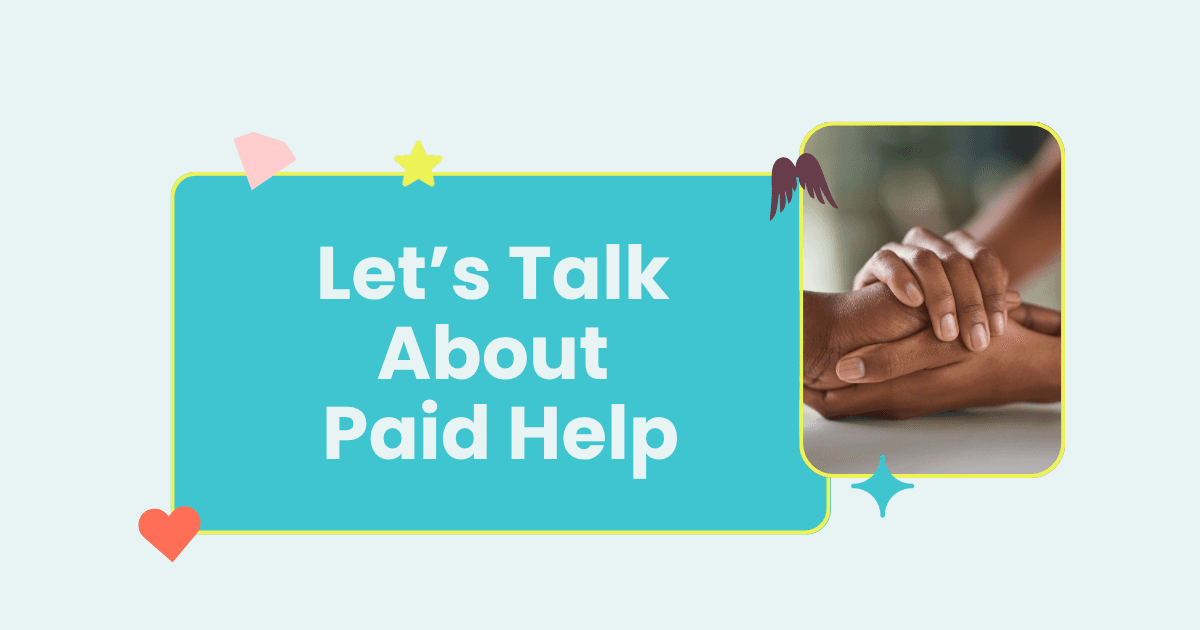How to Recognize When You Need Paid Help (and Why It’s Okay to Ask)
When you're caring for a spouse, parent, or another loved one, it can feel like the responsibility rests entirely on your shoulders—that asking for outside help somehow means you're not doing enough. But the truth is, there are moments when bringing in paid support isn’t just helpful—it’s a vital step in ensuring both your well-being and the quality of care your loved one receives.

Dr. Shruti Roy, D.O.
Published on July 21, 2025

When you're caring for a spouse, parent, or another loved one, it can feel like the responsibility rests entirely on your shoulders—that asking for outside help somehow means you're not doing enough. But the truth is, there are moments when bringing in paid support isn’t just helpful—it’s a vital step in ensuring both your well-being and the quality of care your loved one receives.
1. You’re Mentally and Physically Exhausted
Caregiving is not just physically taxing—it’s emotionally demanding, often 24/7. If you're waking up tired, losing patience more easily, or feeling numb, hopeless, or angry, these are signs of caregiver burnout. Over time, this chronic stress can impact your immune system, lead to sleep issues, and even trigger anxiety or depression.
Paid help can offer:
A home health aide
can take on daily personal care tasks—like helping your loved one bathe, eat, or move around—so you're not stretched thin handling every detail.
Respite care
provides short-term relief. Whether it’s a few hours a week or a weekend away, it gives you a break to decompress, run errands, or simply breathe.
Overnight care
ensures you can get real, restorative sleep without worrying if your loved one will need you in the middle of the night.
Reminder: You can’t pour from an empty cup. Your well-being matters, too.
2. Your Loved One’s Needs Are Increasing Beyond Your Abilities
As your loved one’s condition progresses—due to aging, chronic illness, or cognitive decline—you may be facing tasks that require medical knowledge, physical strength, or specialized training. Trying to handle these without proper support can be dangerous for both of you.
Paid help can provide the right care at the right level:
Skilled nursing care
brings licensed professionals into the home to manage medications, dress wounds, or handle complex health concerns—safely and confidently.
Occupational or physical therapy
can help your loved one maintain mobility, improve function, and adapt to changes with expert guidance.
Help with medical equipment
—like feeding tubes, oxygen, or lifts—ensures these are used correctly, reducing the risk of injury or mistakes.
Reality check: Needing expert help doesn’t mean you’re failing—it means you care enough to get the right support.
3. You’re Neglecting Your Own Life, Health, or Responsibilities
If caregiving has slowly crowded out everything else—your job, your friendships, your hobbies, your own doctor’s visits—you may be losing sight of yourself. Over time, this self-neglect can lead to exhaustion, resentment, or a sense of being trapped.
Paid help can create the breathing room you need:
Flexible support
allows you to schedule time for your own needs—whether it's a check-up, a night out, or simply an uninterrupted shower.
Peace of mind
comes from knowing your loved one is being cared for by someone trained, present, and dependable.
Time to reconnect with yourself
—to read a book, take a walk, talk to a friend, or dream again—helps you feel like more than just a caregiver.
Perspective shift: You’re still you—with dreams, needs, and a future that deserves care, too. Reclaiming some of that doesn’t make you selfish.

About Dr. Shruti Roy, D.O.
Dr. Shruti Roy is a pediatrician and mom of three who spent years coordinating care for children in urgent care and emergency room settings. But when faced with managing the care of her own aging parents Shruti encountered firsthand the overwhelming gaps in caregiver support. Juggling her career, motherhood, and caregiving opened her eyes to how isolating and challenging this role can be, even for a medical professional. Today, Shruti is passionate about empowering families who are caring for loved ones across generations. She shares both medical insights and personal lessons learned from living this balancing act every day.
